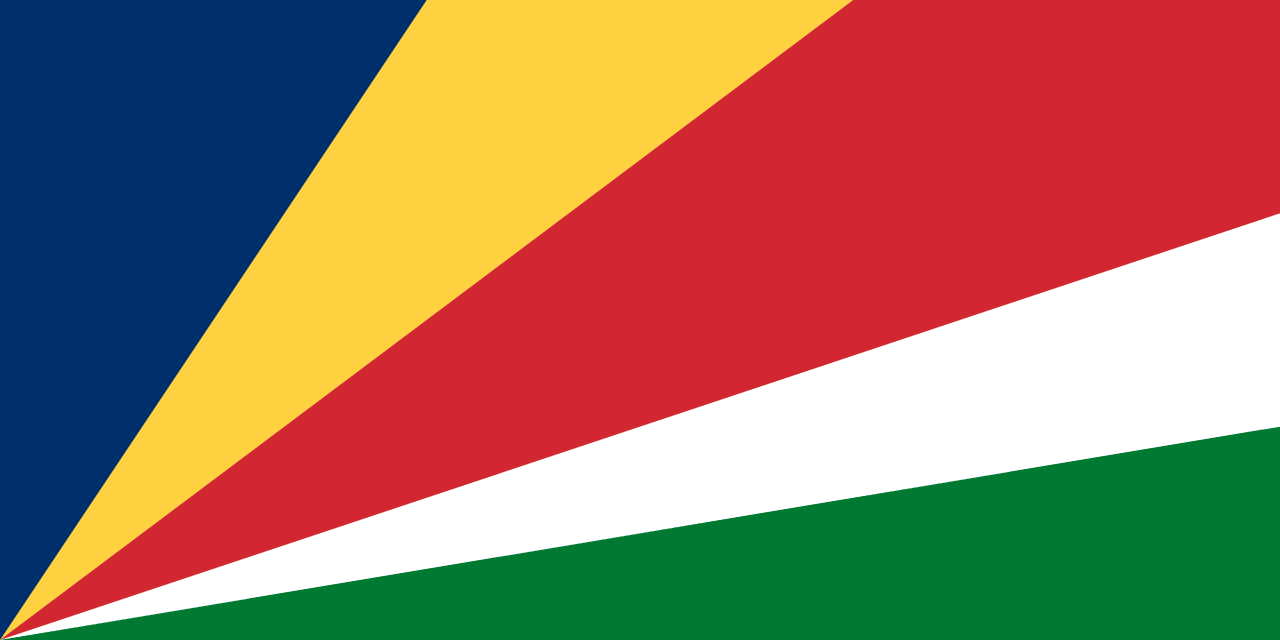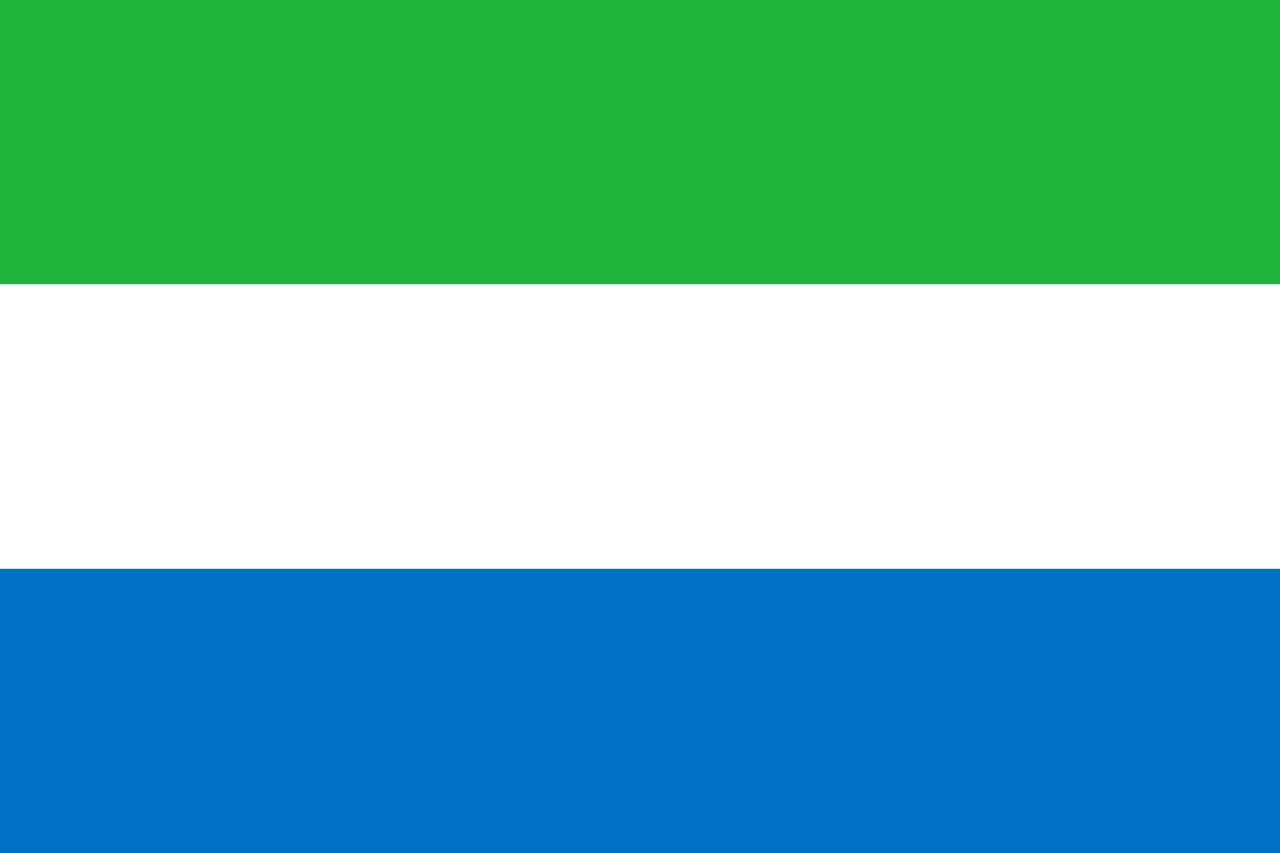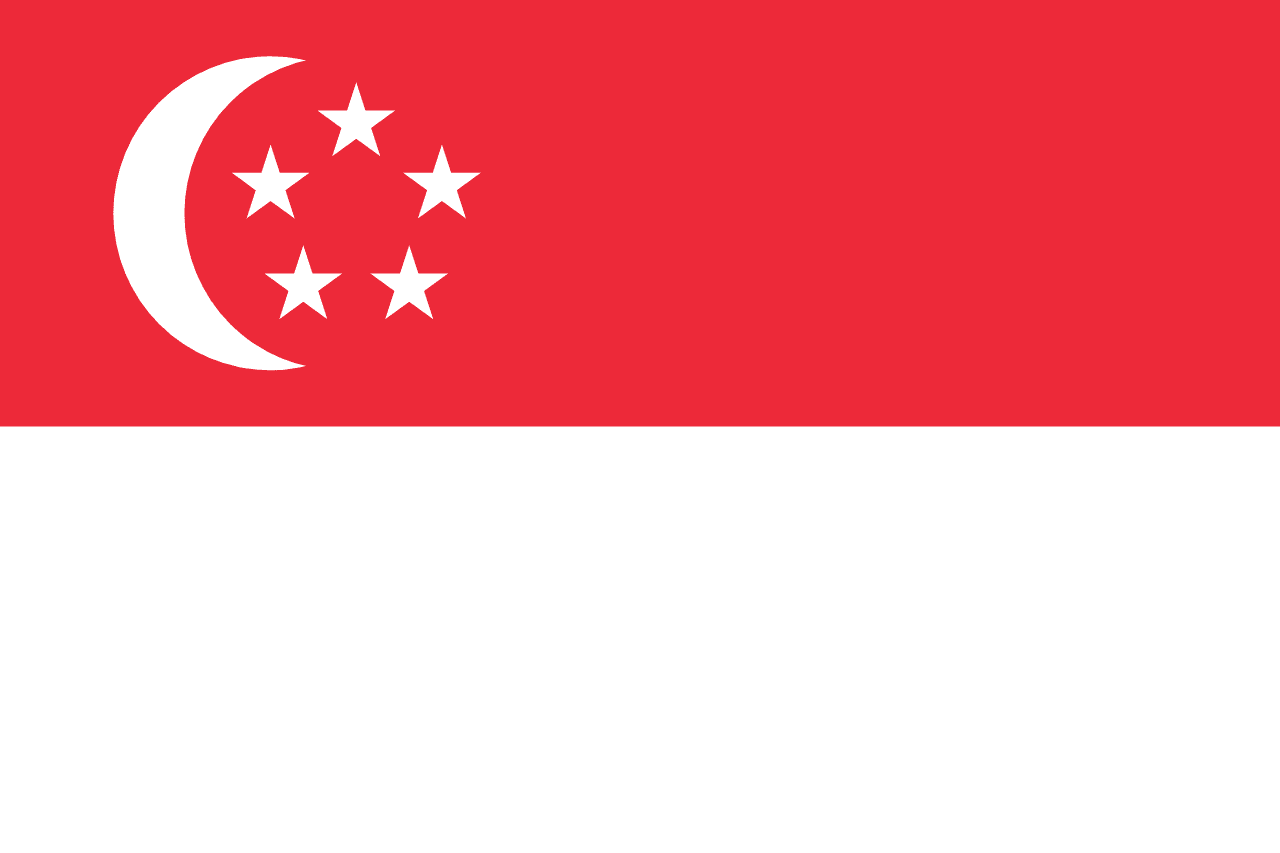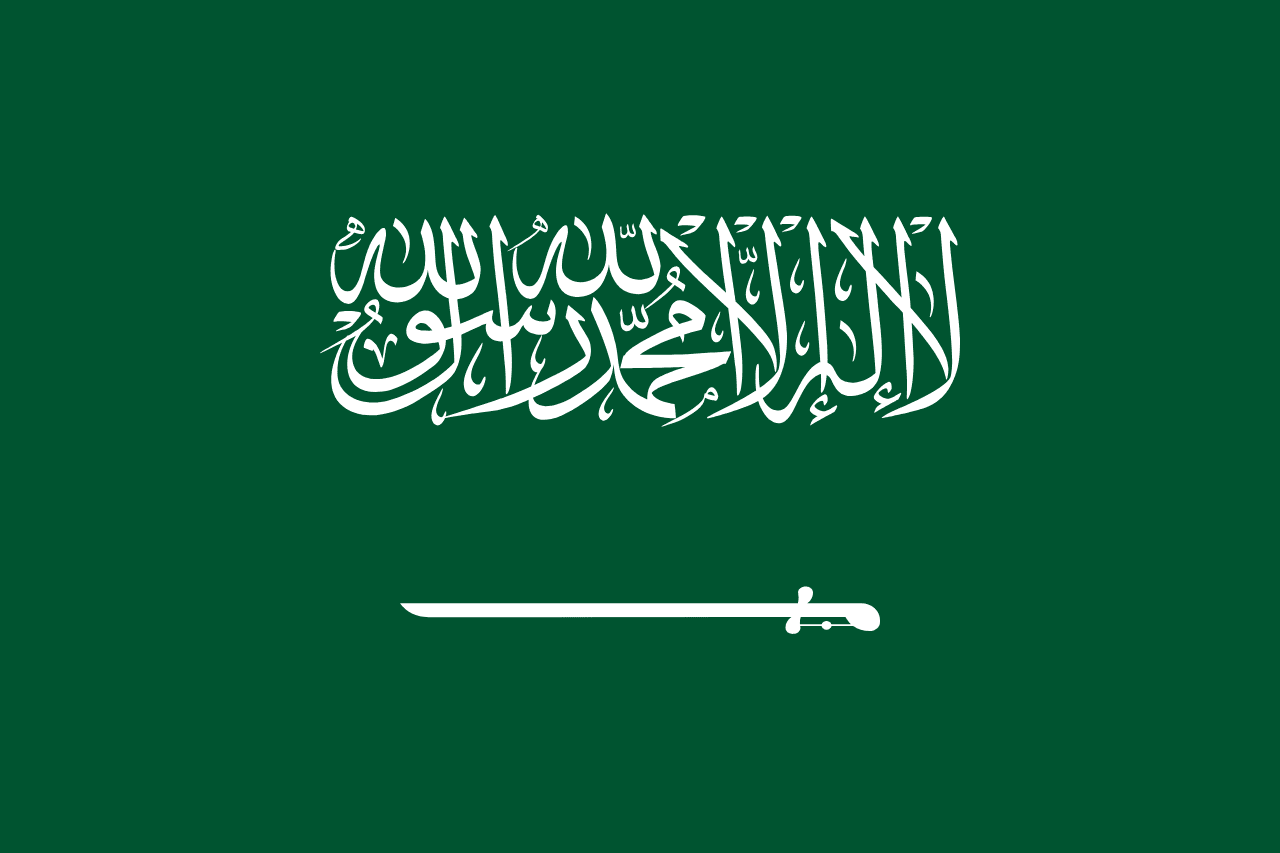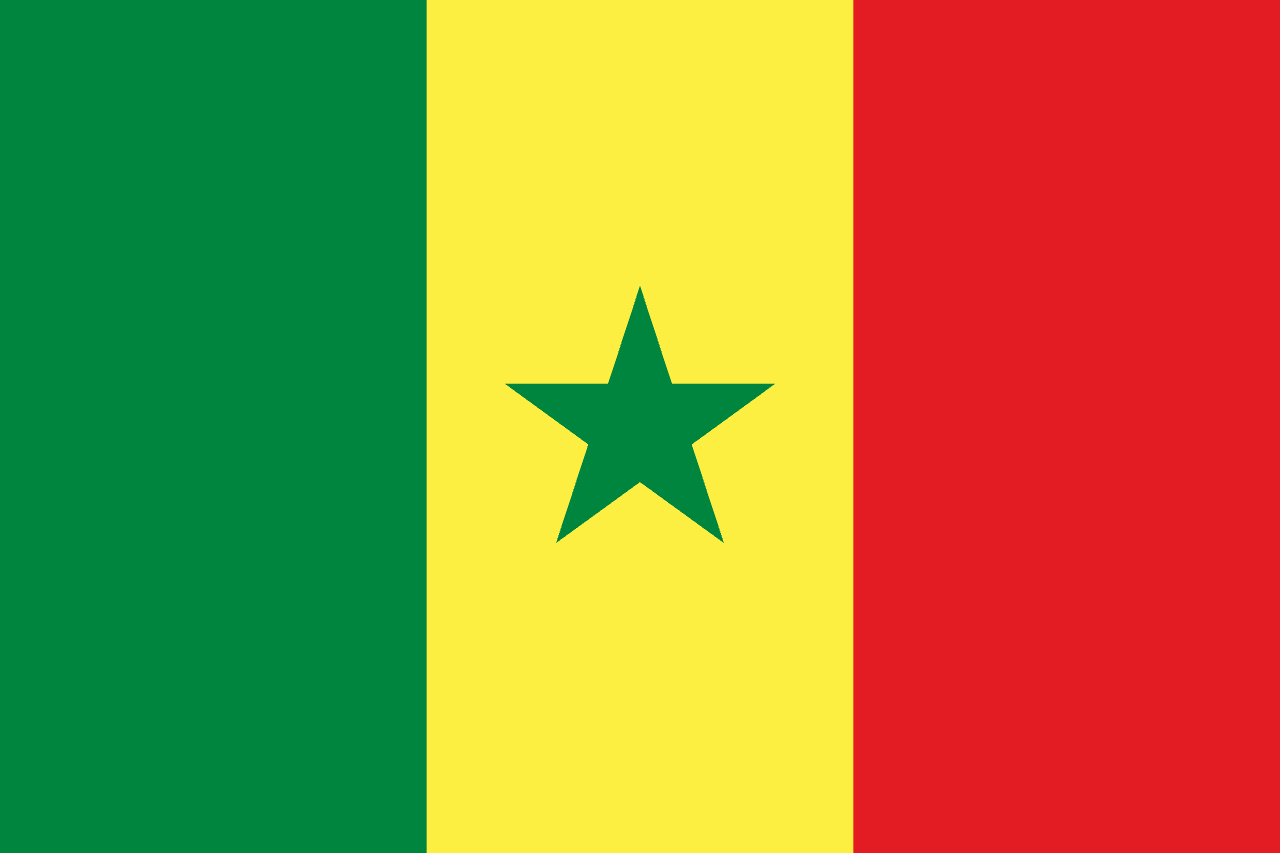The flag of Serbia consists of three horizontal stripes of red, blue, and white, with the national coat of arms positioned towards the hoist side. This tricolor design, combined with the intricate coat of arms, represents Serbia's rich history, cultural heritage, and national identity.
Serbia information
| National Flag Day | February 15th (Statehood Day) |
| Sovereign state | Yes |
| Official name | Republic of Serbia |
| Capital | Belgrade |
| Population | 7,076,372 |
| Area | 88,361 km² |
| Currency | Serbian dinar (RSD) |
| Language | Serbian |
| Continent | Europe |
| Region | Balkans |
| Subregion | South Europe |
| Borders | Bosnia and Herzegovina, Bulgaria, Croatia, Hungary, North Macedonia, Montenegro, Romania |
| Timezone | Central European Time (CET) UTC+1 |
| Calling code | +381 |
| Top-level domain | .rs |
History of the Serbian flag
 The current version of the Serbian flag was officially adopted on November 11, 2010, following Montenegro's independence in 2006 and the dissolution of the state union of Serbia and Montenegro. However, the tricolor design has a much longer history, dating back to the 19th century when it was first used as a symbol of Serbian statehood during the country's struggle for independence from the Ottoman Empire.
The current version of the Serbian flag was officially adopted on November 11, 2010, following Montenegro's independence in 2006 and the dissolution of the state union of Serbia and Montenegro. However, the tricolor design has a much longer history, dating back to the 19th century when it was first used as a symbol of Serbian statehood during the country's struggle for independence from the Ottoman Empire.
Symbolism and design of the Serbian flag
The flag's design is rich in symbolism:
- The red, blue, and white colors are pan-Slavic colors, representing Serbia's cultural and ethnic ties to other Slavic nations. These colors have been associated with Serbian identity since the Middle Ages.
- The red stripe symbolizes the blood shed by Serbian people in their struggles for freedom and independence throughout history.
- The blue stripe represents the sky and is associated with truth, loyalty, and justice.
- The white stripe symbolizes peace, purification, and hope for the future.
- The national coat of arms, positioned on the flag, features a double-headed white eagle on a red shield, which has been a symbol of Serbia since medieval times. The shield is adorned with a crown, representing Serbia's historical monarchy.
The coat of arms also includes two fleurs-de-lis, a cross with four firesteels (a traditional Serbian symbol), and the date 1882, marking the year when Serbia was proclaimed a kingdom.
Usage and significance of the Serbian flag
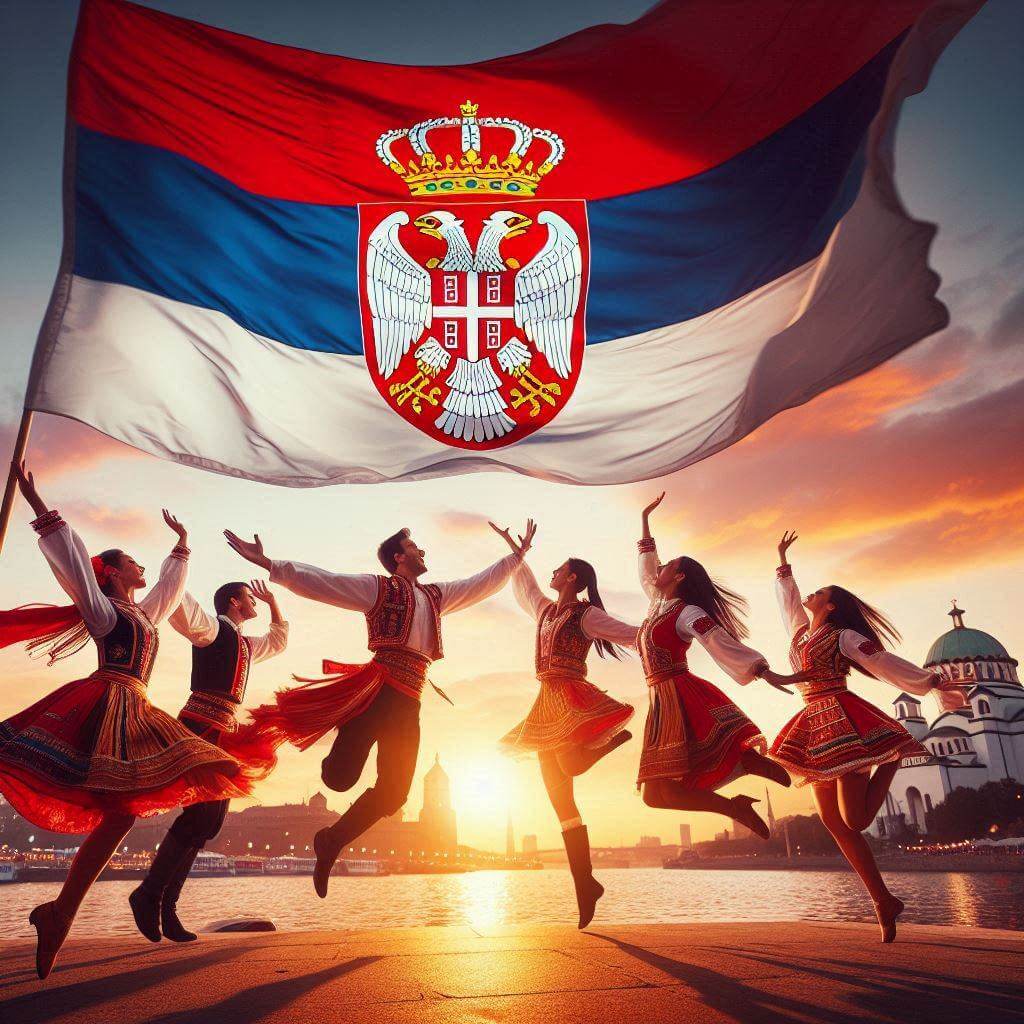 The flag of Serbia is a powerful symbol of national identity and pride. It is prominently displayed on government buildings, schools, and during national celebrations such as Statehood Day on February 15th. The flag also represents Serbia in international forums, sporting events, and cultural exchanges, serving as a visual embodiment of Serbian sovereignty and cultural heritage.
The flag of Serbia is a powerful symbol of national identity and pride. It is prominently displayed on government buildings, schools, and during national celebrations such as Statehood Day on February 15th. The flag also represents Serbia in international forums, sporting events, and cultural exchanges, serving as a visual embodiment of Serbian sovereignty and cultural heritage.
In Serbian culture, the flag is often incorporated into traditional costumes and is a common motif in art and literature, reflecting its importance as a symbol of national unity and resilience.
Interesting facts about Serbia and its flag
- The Serbian flag is unique among Slavic tricolors for featuring its coat of arms, making it easily distinguishable from similar flags like those of Russia and Slovenia.
- The double-headed eagle on the coat of arms symbolizes Serbia's position between East and West, reflecting its historical role as a crossroads of cultures.
- Serbia's flag has undergone several changes throughout history, reflecting the country's complex political past, including periods as part of Yugoslavia and various state unions.
- The current flag design was chosen to represent continuity with Serbia's historical symbols while also marking a new era of independence and national identity.
- The Serbian flag is often displayed alongside the flags of the country's autonomous provinces, Vojvodina and Kosovo, in official settings, reflecting Serbia's complex territorial and political structure.
